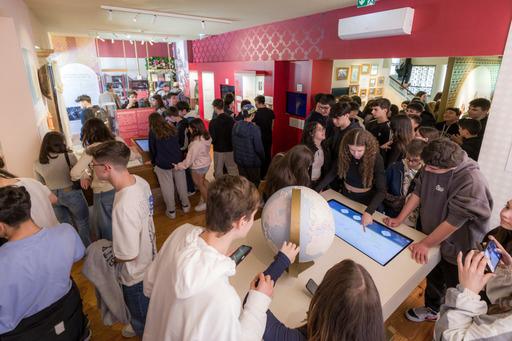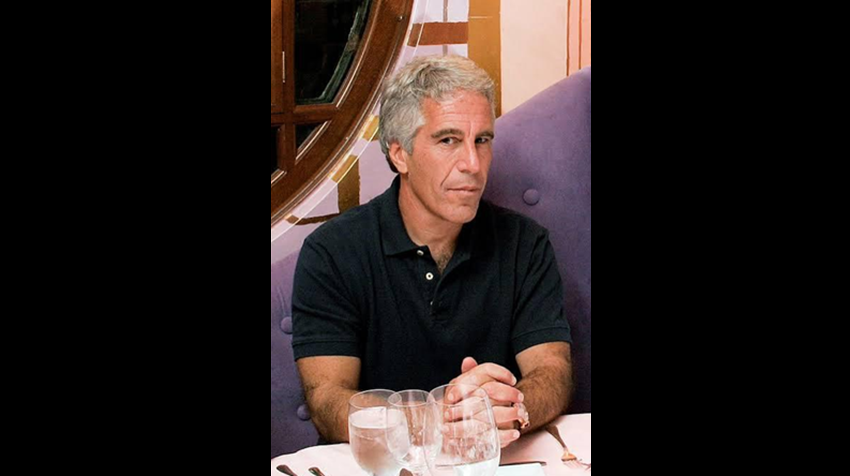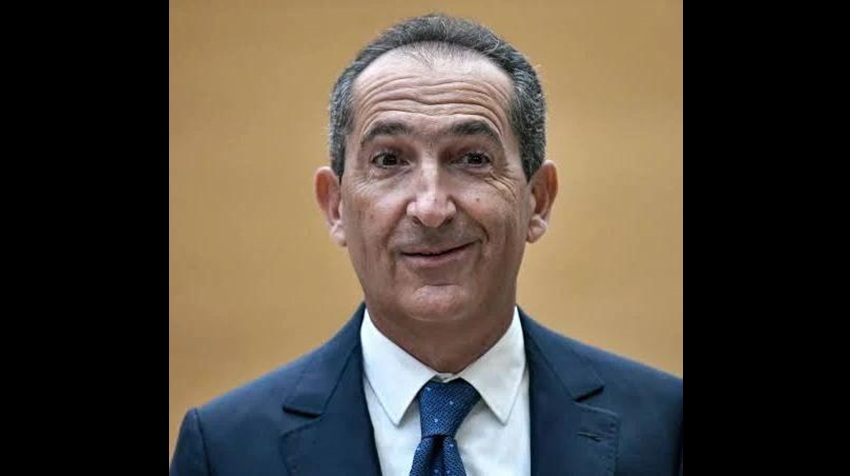The Jewish Museum of Oporto
The Jewish Museum of Oporto has just announced that it has reinforced its collection with three new high-quality paintings. The works by the painter Jorge Marinho concern the role of the Jews in the administration of the kingdom, its development and the phase of its fall when they were forced to leave.
The museum, inaugurated in 2019 has been open for five years and for security reasons it is only open to schools and the national and international Jewish community, except for the European Day of Jewish Culture, on the first Sunday of September each year. On that day, it is open to the public, together with the Holocaust Museum and the Kadoorie Mekor Haim Synagogue.
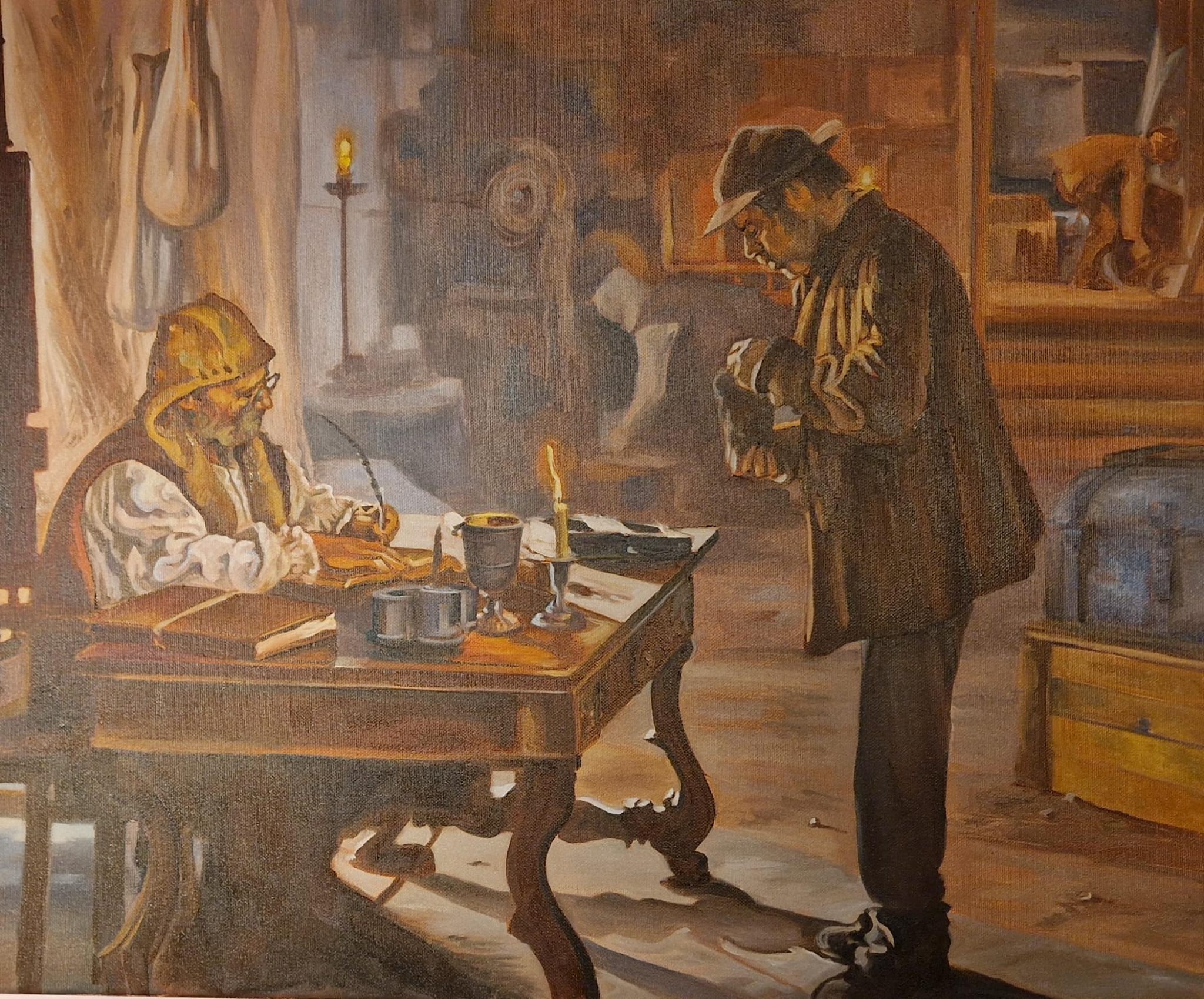
New painting acquired by the Jewish Museum of Oporto
The Jews played a role of the highest importance in the administration of the country and, with their scientific, cultural, commercial, economic capacity and mastery of many languages, they contributed to Portugal's diplomatic relations, to obtaining privileged information and to the discoveries around the world that transformed a small county into an Empire with 13 million square kilometers.
The Edict of expulsion was negative not only for the Jews, but also for Portugal. A chain of facts even led to the loss of Portugal's independence in 1580, as can be seen from a rare object exhibited in the museum - the "Megillat Purim Sebastiano".
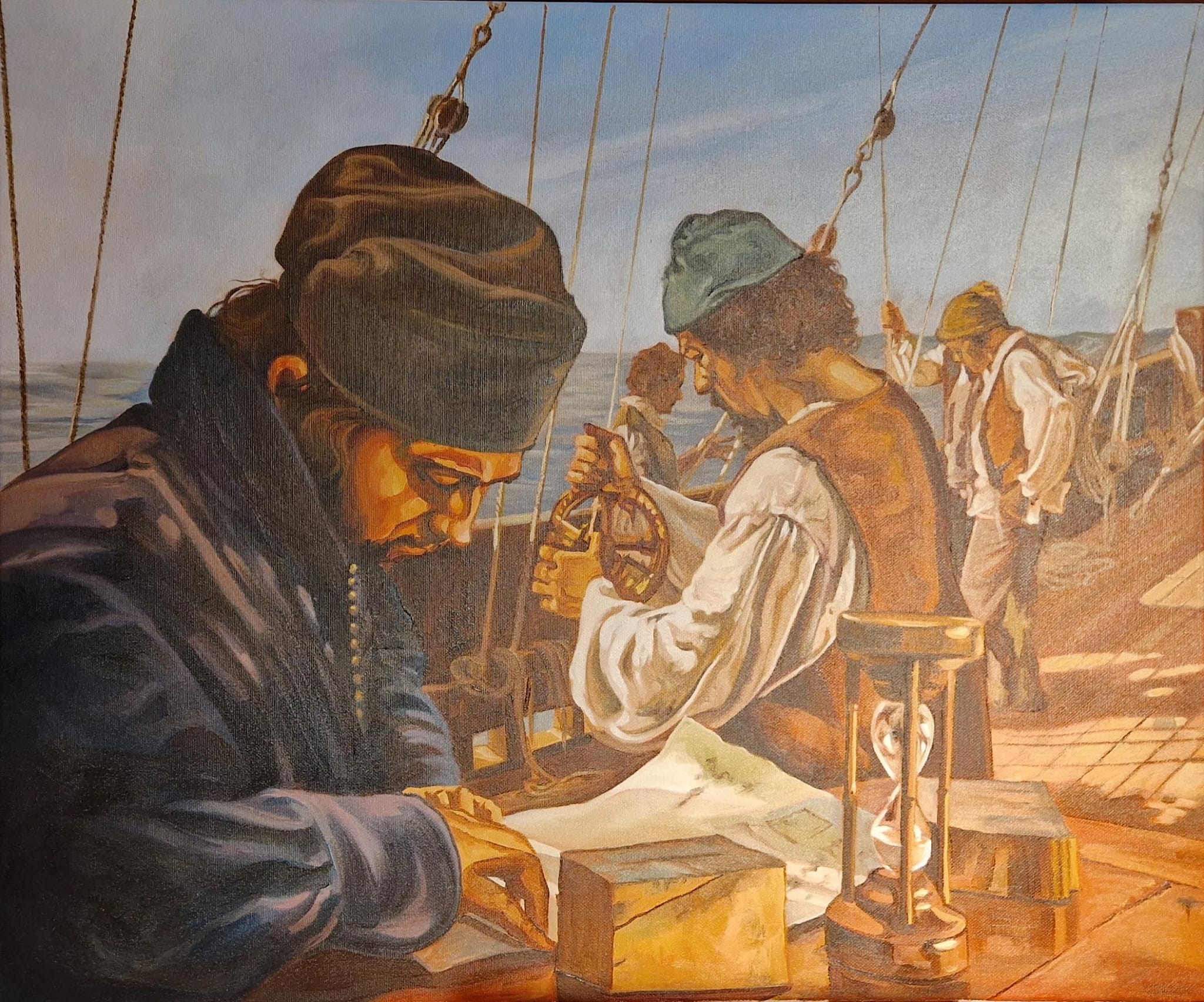
New painting acquired by the Jewish Museum of Oporto
Among the objects that stand out the most in the Jewish Museum of Oporto are Jewish objects of great value, paintings, the epigraph of a fourteenth-century synagogue, a memorial in honor of the last Gaon of Castile, Isaac Aboab, who died in Oporto and whose funeral was presided over by the rabbi and astronomer Abraão Zacuto, a prison cart of the Inquisition, a book by Friar de Torrejoncillo that assured that the Jews had a tail and a mural with about 900 names of Oporto residents victimized by the inquisition.
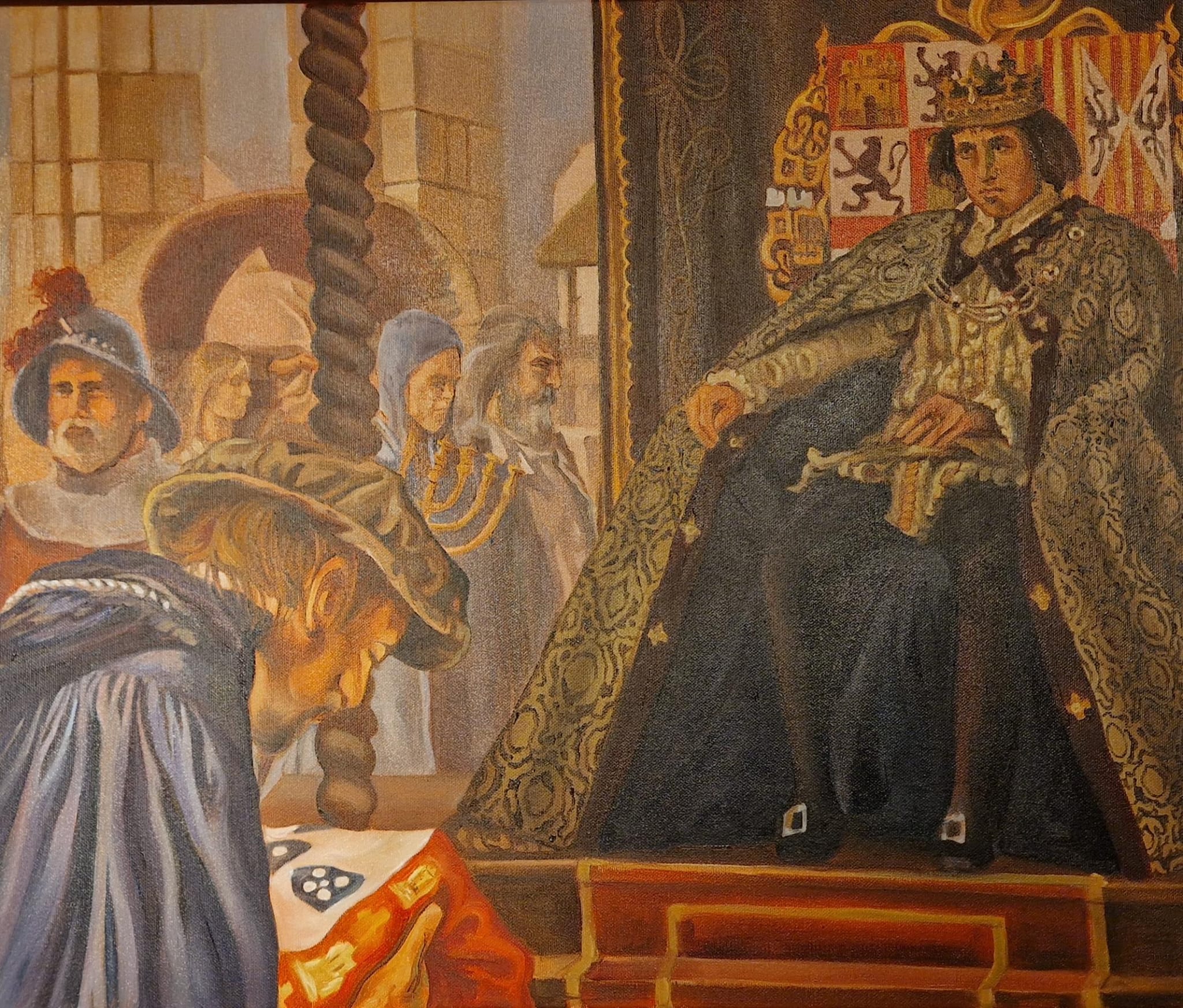
New painting acquired by the Jewish Museum of Oporto.
Also the museum's cinema is often visited by young students and Jewish tourists to see the films "The Light of Judah", "The Lisbon Genocide" and "1618". They portray the immediate effects of Dom Manuel's Edict on the Portuguese Jewish community, the massacre of thousands of Jews in Lisbon and the action of the Inquisition in the city of Oporto. The municipal and judicial authorities of the city opposed such inquisitorial persecution, and even ordered the siege of the ecclesiastical court by guards on horseback. This case, unprecedented in Portugal in the seventeenth century, led the Visitor Sebastião de Noronha to travel to Madrid to complain to King Dom Filipe.































